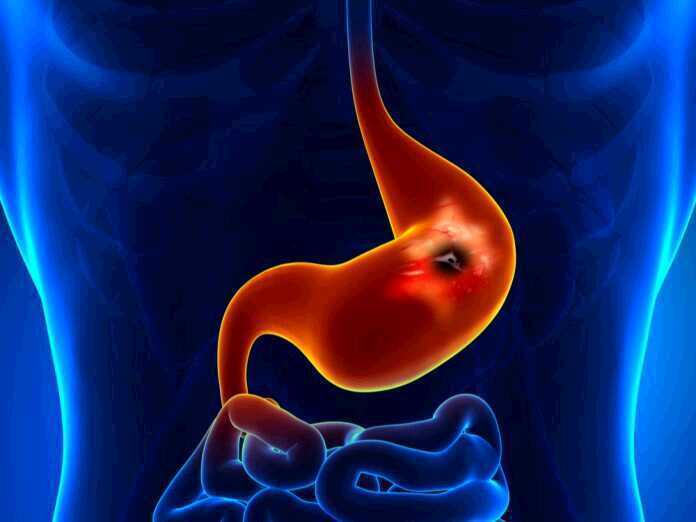
Open sores that can develop in our stomach lining, stomach ulcers (sometimes called peptic ulcers) can also appear on our small intestine. Although they are rather easy to treat and remove, if left untreated, they can cause serious health problems. A burning feeling in your abdomen, weight loss, and nausea are typical symptoms of stomach ulcers.
In this article, we will be going over the most common causes of stomach ulcers and their treatment options.
Causes of Stomach Ulcers
There are two common causes of stomach ulcers:
- A bacterial infection – a bacteria called Helicobacter pylori can cause an inflammation of our stomach lining. This bacteria usually lives in our digestive tract without causing any harm. However, in certain cases, it can cause an infection that produces an ulcer.
- Excessive use of pain medication – some OTC drugs commonly used to manage pain or colds can irritate our stomach lining and cause ulcers. This includes some of the most common NSAIDs (nonsteroidal anti-inflammatory drugs) like ibuprofen, aspirin, and naproxen.
To diagnose this condition, doctors can use blood, breath, and stool tests. In some cases, your doctor may require an endoscopy.
Treatment Options
If caused by bacteria, stomach ulcers can be successfully treated with antibiotics that kill Helicobacter pylori. Other medications include: proton pump inhibitors (PPIs), H2 blockers, and antacids. All of these drugs affect our stomach acid, either by stopping the acid-producing stomach cells or neutralizing our stomach acid directly.
The Bottom Line
Now that you’re more familiar with the most common causes of stomach ulcers and their possible treatment options, you know how you can prevent this condition. Reduce your use of NSAIDs (if possible) and contact your doctor if you notice any symptoms of stomach ulcers.






























